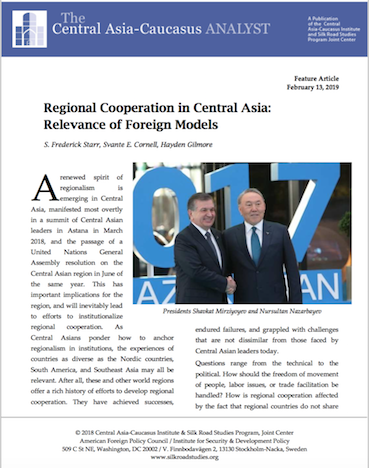Regional Cooperation in Central Asia: Relevance of Foreign Models
A renewed spirit of regionalism is emerging in Central Asia, manifested most overtly in a summit of Central Asian leaders in Astana in March 2018, and the passage of a United Nations General Assembly resolution on the Central Asian region in June of the same year. This has important implications for the region, and will inevitably lead to efforts to institutionalize regional cooperation. As Central Asians ponder how to anchor regionalism in institutions, the experiences of countries as diverse as the Nordic countries, South America, and Southeast Asia may all be relevant. After all, these and other world regions offer a rich history of efforts to develop regional cooperation. They have achieved successes, endured failures, and grappled with challenges that are not dissimilar from those faced by Central Asian leaders today.
Questions range from the technical to the political. How should the freedom of movement of people, labor issues, or trade facilitation be handled? How is regional cooperation affected by the fact that regional countries do not share the same patterns of membership in international organizations? How deeply institutionalized should regional structures be? How do they relate to outside powers, particularly large ones and potential hegemons? These questions are the focus of the following sections.




